Shrinivas Chimmalgi
Precoding Design for Multi-User MIMO Joint Communications and Sensing
Jan 28, 2026Abstract:We investigate precoding for multi-user (MU) multiple-input multiple-output (MIMO) joint communications and sensing (JCAS) systems, taking into account the potential interference between sensing and communication channels. We derive indicators for the sensing and communication performance, i.e., the detection probability and the communication signal-to-interference-and-noise ratio (SINR) for general input signals. Our results show that the use of the communication signal for sensing can prevent a loss in communication performance if channel interference occurs, while the kurtosis of the transmit alphabet of the communication signal limits the sensing performance. We present simulation results of example setups.
Resolution Improvement in OFDM-based Joint Communication and Sensing through Combined Tracking and Interpolation
Nov 19, 2024Abstract:We investigate a monostatic orthogonal frequency-division multiplexing (OFDM)-based joint communication and sensing (JCAS) system with multiple antennas for object tracking. The native resolution of OFDM sensing, and radar sensing in general, is limited by the observation time and bandwidth. In this work, we improve the resolution through interpolation methods and tracking algorithms. We verify the resolution enhancement by comparing the root mean squared error (RMSE) of the estimated range, velocity and angle and by comparing the mean Euclidean distance between the estimated and true position. We demonstrate how both a Kalman filter for tracking, and interpolation methods using zero-padding and the chirp Z-transform (CZT) improve the estimation error. We discuss the computational complexity of the different methods. We propose the KalmanCZT approach that combines tracking via Kalman filtering and interpolation via the CZT, resulting in a solution with flexible resolution that significantly improves the range RMSE.
Approximate Maximum a Posteriori Carrier Phase Estimator for Wiener Phase Noise Channels using Belief Propagation
Jul 07, 2023
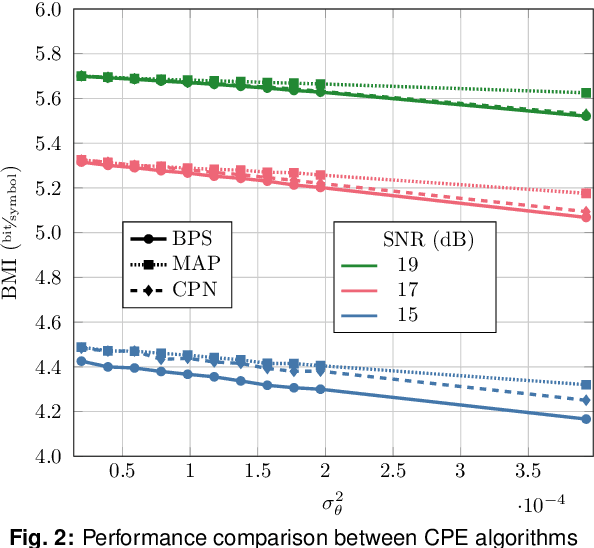
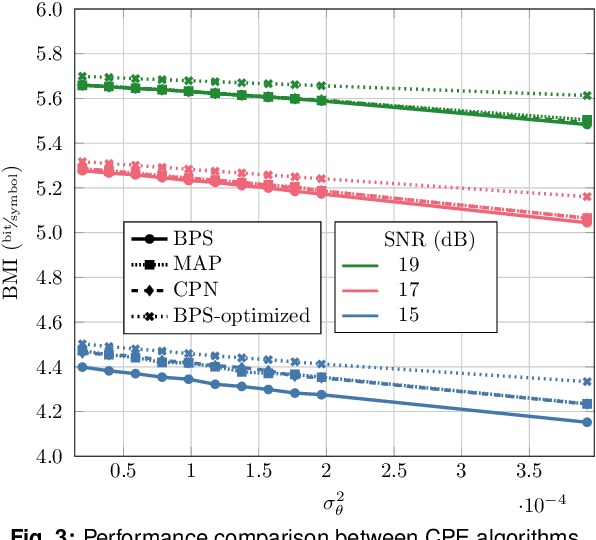
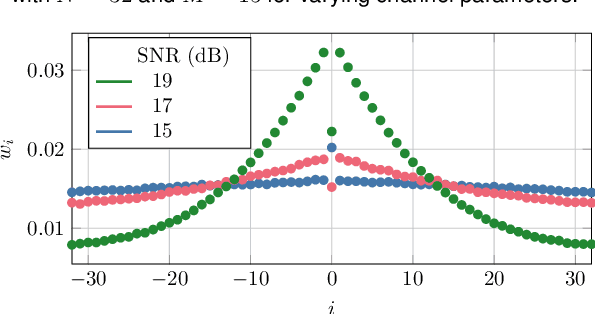
Abstract:The blind phase search (BPS) algorithm for carrier phase estimation is known to have sub-optimal performance for probabilistically shaped constellations. We present a belief propagation based approximate maximum a posteriori carrier phase estimator and compare its performance with the standard and an improved BPS algorithm.
Optimized Geometric Constellation Shaping for Wiener Phase Noise Channels with Viterbi-Viterbi Carrier Phase Estimation
Jul 03, 2023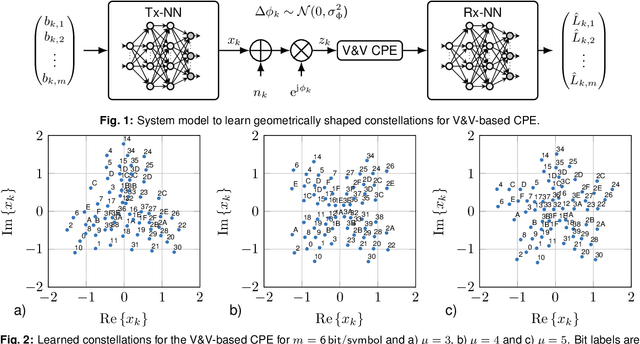
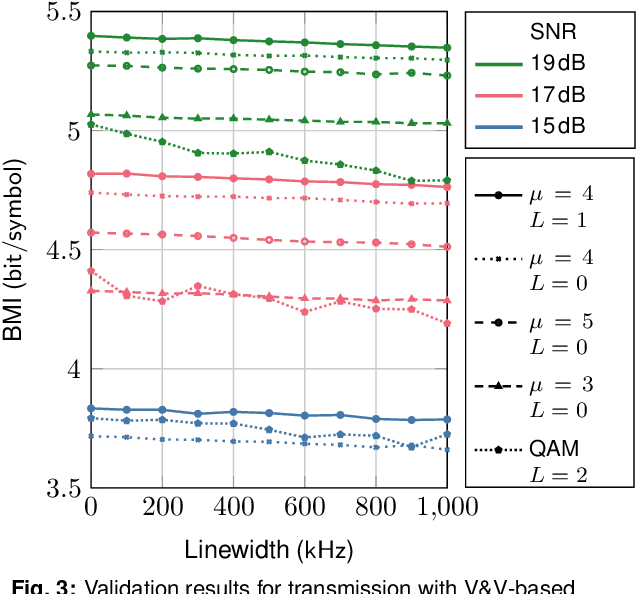
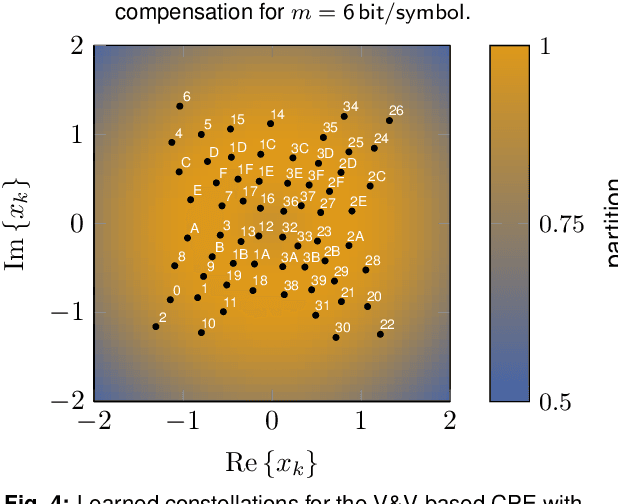
Abstract:The Viterbi & Viterbi (V&V) algorithm is well understood for QPSK and 16-QAM, but modifications are required for higher-order modulation formats. We present an approach to extend the standard V&V algorithm for higher-order modulation formats by modifying the transmit constellation with geometric constellation shaping.
End-to-end Optimization of Constellation Shaping for Wiener Phase Noise Channels with a Differentiable Blind Phase Search
Dec 07, 2022
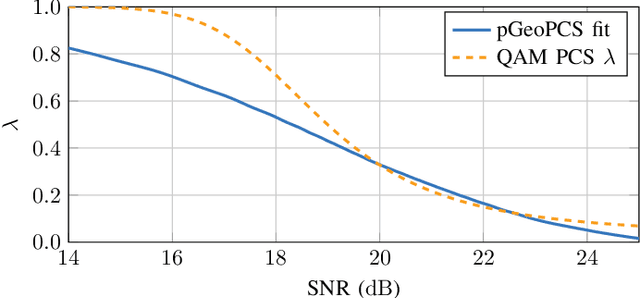
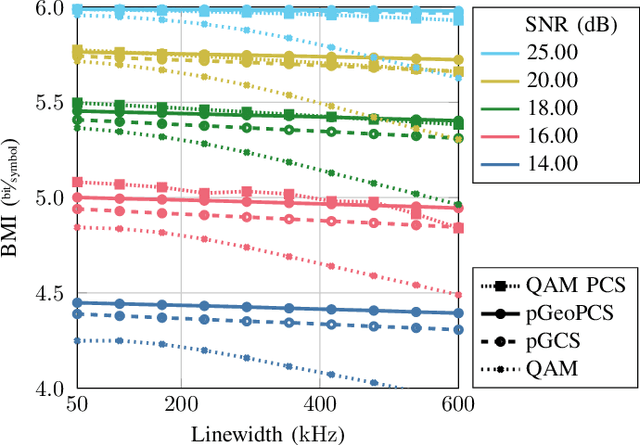
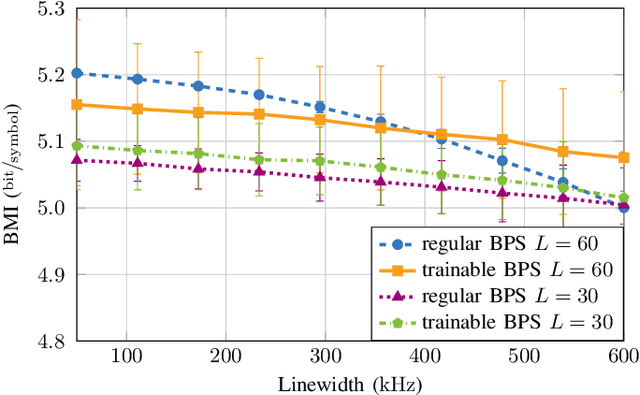
Abstract:As the demand for higher data throughput in coherent optical communication systems increases, we need to find ways to increase capacity in existing and future optical communication links. To address the demand for higher spectral efficiencies, we apply end-to-end optimization for joint geometric and probabilistic constellation shaping in the presence of Wiener phase noise and carrier phase estimation. Our approach follows state-of-the-art bitwise auto-encoders, which require a differentiable implementation of all operations between transmitter and receiver, including the DSP algorithms. In this work, we show how to modify the ubiquitous blind phase search (BPS) algorithm, a popular carrier phase estimation algorithm, to make it differentiable and include it in the end-to-end constellation shaping. By leveraging joint geometric and probabilistic constellation shaping, we are able to obtain a robust and pilot-free modulation scheme improving the performance of 64-ary communication systems by at least 0.1bit/symbol compared to square QAM constellations with neural demappers and by 0.05 bit/symbol compared to previously presented approaches applying only geometric constellation shaping.
 Add to Chrome
Add to Chrome Add to Firefox
Add to Firefox Add to Edge
Add to Edge